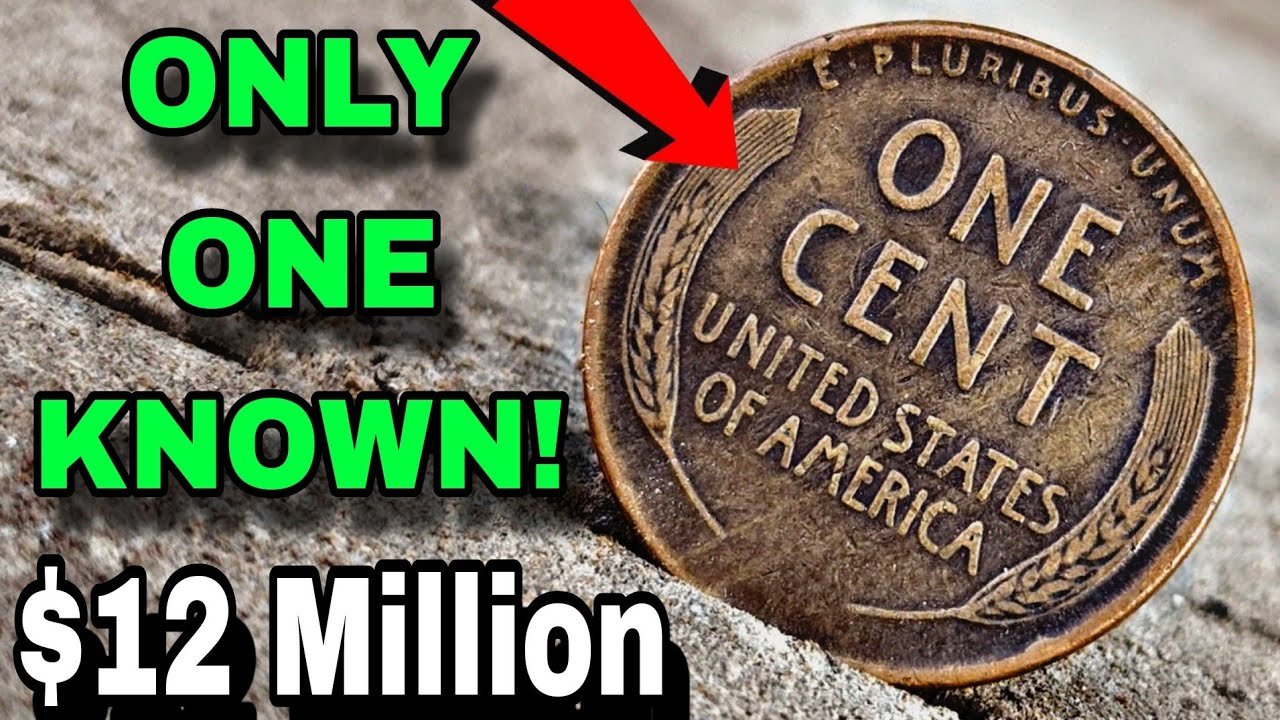Ever wondered if the spare change jingling in your pocket could be worth millions? Sounds like a dream — but it’s not as far-fetched as you might think. A rare 1943 bronze Lincoln Wheat Penny reportedly sold for a staggering $8.1 million, and it could still be hiding in everyday circulation.
Let’s break down the story behind this record-setting coin, why it’s so valuable, and how you can check if one of these rare pennies is in your collection.
What Is a Lincoln Wheat Penny?
The Lincoln Wheat Penny was introduced in 1909 to commemorate the 100th anniversary of Abraham Lincoln’s birth. It was the first U.S. coin to feature a real historical figure and remained in production until 1958.
The reverse side displays two wheat stalks, earning it the nickname “Wheat Penny.” Designed by Victor David Brenner, the coin quickly became a favorite among coin collectors and history buffs alike.
Why Are Some Lincoln Pennies Worth Thousands — or Millions?
Most Wheat Pennies are only worth a few cents. But some stand out and can fetch eye-watering prices. These high-value coins usually fall into one of three categories:
Minting Errors (Mistake Coins)
Coins with printing mistakes — such as doubled images, off-center designs, or wrong materials — are rare and highly sought after.
Low Mintage Coins
Certain pennies were produced in very limited numbers, making them rare by default.
Historical Significance
Coins minted during pivotal historical events or transitions in U.S. coinage tend to carry added value for collectors.
The $8.1 Million Penny: What Makes the 1943 Bronze Lincoln So Special?
Wartime Production Change
During World War II, copper was essential for making ammunition and military equipment. To conserve resources, the U.S. Mint switched to using zinc-coated steel for pennies in 1943.
But here’s the twist: a few leftover copper (bronze) blanks from 1942 accidentally made it into the press.
Result: The Legendary 1943 Bronze Penny
Only about 20 of these bronze 1943 pennies are known to exist. One of them reportedly sold for a mind-blowing $8.1 million at auction, making it one of the most valuable coins ever sold.
Since not all of these coins have been accounted for, there’s still a chance one could be sitting in a jar of spare change somewhere.
How to Identify a Valuable Lincoln Wheat Penny
Think you’ve found a special coin? Here’s how to check if it’s one of the valuable ones.
Step 1: Check the Year and Mint Mark
Look on the front (obverse) side of the coin:
- 1909-S VDB
- 1914-D
- 1922 (no mint mark)
- 1943 Bronze (not steel)
Mint marks:
- D = Denver
- S = San Francisco
- No letter = Philadelphia
Step 2: Try the Magnet Test
Steel pennies from 1943 will stick to a magnet.
Bronze ones won’t — a simple way to rule out the common versions.
Step 3: Weigh It
A genuine bronze penny weighs around 3.11 grams, while the steel version weighs about 2.7 grams.
Step 4: Look for Minting Errors
Keep an eye out for:
- Doubled text or images (especially 1955, 1972)
- Missing letters
- Off-center stamping
These can significantly increase a penny’s value.
What to Do If You Find a Rare Wheat Penny
If you think you’ve found a winner, take these steps:
Don’t Clean It
Cleaning a rare coin can damage it and lower its value.
Store It Safely
Use a soft coin pouch or protective coin holder to avoid scratches.
Get It Authenticated
Have it graded by a professional service like:
- PCGS (Professional Coin Grading Service)
- NGC (Numismatic Guaranty Corporation)
Sell or Keep?
Once verified, you can:
- Sell to a reputable coin dealer
- Auction it through a trusted platform
- Keep it as a long-term collectible investment
Why People Love Collecting Lincoln Wheat Pennie
Coin collecting isn’t just for experts. It’s an engaging and educational hobby that brings history to life. For many, the thrill is in the hunt — the chance to discover a valuable coin hiding in plain sight.
And with stories like the $8.1 million penny, it’s easy to see why people check their change a little more closely these days.
Disclaimer
This content is for educational and informational purposes only. Coin values depend on market conditions, coin grade, rarity, and demand. Always consult a professional numismatist or grading service before buying, selling, or investing in rare coins.
FAQs About Rare Pennies
Q1: How do I know if my 1943 penny is bronze or steel?
Try a magnet. Steel sticks. Bronze does not.
Q2: What does “VDB” mean on a penny?
“VDB” are the initials of Victor David Brenner, the coin’s designer. The 1909-S VDB is among the most valuable Lincoln pennies.
Q3: Are all old pennies valuable?
Not all. Most are worth face value unless they’re rare due to errors, low mintage, or historical importance.
Q4: Where can I sell a rare coin?
Use platforms like eBay, Heritage Auctions, or certified dealers — but always get it authenticated first.
Final Thoughts: Check Your Change — You Might Be Holding a Fortune
The idea that a simple penny could be worth millions is more than just folklore. With a little knowledge, a good eye, and a bit of luck, you might just discover a life-changing coin in your pocket.
So go ahead — dump out that coin jar. Your next great treasure might be one cent away.

